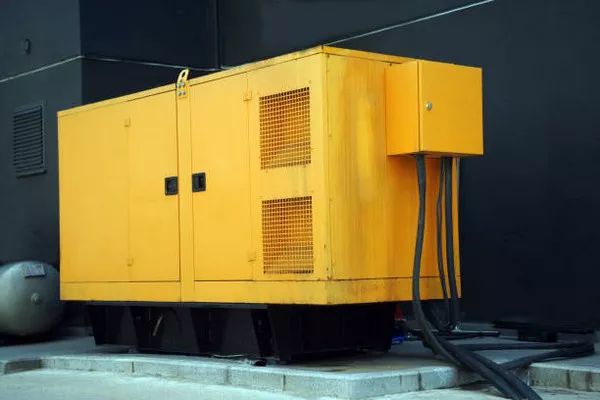In an age where dependency on electricity is paramount, ensuring uninterrupted power supply has become a critical concern for both residential and commercial entities. As power outages become more frequent due to various factors such as extreme weather conditions, infrastructure issues, or unexpected technical failures, the need for a reliable backup generator has surged. In this article, we will explore the factors influencing the cost of backup generators, helping consumers make informed decisions about this essential investment.
Factors Affecting Backup Generator Costs
Power Capacity
One of the primary factors influencing the cost of a backup generator is its power capacity, measured in kilowatts (kW). The greater the power capacity, the higher the cost. Homeowners often opt for generators with lower power capacities, ranging from 5 kW to 20 kW, to cover essential appliances and lighting. In contrast, businesses may require larger generators with capacities exceeding 100 kW to sustain entire operations during power outages.
Fuel Type
Backup generators come in various fuel types, including gasoline, diesel, natural gas, and propane. The choice of fuel type significantly impacts the overall cost of the generator. Gasoline-powered generators are generally more affordable but may not be as fuel-efficient as diesel generators, which tend to be pricier. Natural gas and propane generators fall in between in terms of cost, with the availability of a natural gas line directly affecting installation expenses.
Brand and Quality
The market is flooded with backup generator options from various manufacturers, each offering different features and levels of reliability. Established brands with a reputation for producing high-quality generators often come with a higher price tag. While it might be tempting to opt for a more affordable option, investing in a reputable brand ensures better performance, durability, and long-term reliability, ultimately saving money on potential repairs or replacements.
Installation Costs
The installation process of a backup generator involves electrical work, fuel connections, and possibly a concrete pad for support. The complexity of the installation, along with local labor costs, can significantly impact the overall expense. It is advisable to hire a professional installer to ensure the generator is correctly integrated into the electrical system, meets local building codes, and operates seamlessly when needed.
Automatic Transfer Switch (ATS)
An automatic transfer switch is a crucial component of a backup generator system. It automatically detects a power outage and transfers the electrical load to the generator, ensuring a seamless transition. The cost of an ATS adds to the overall expense of installing a backup generator but is considered an essential investment for uninterrupted power supply. Some generators come with built-in ATS, while others may require a separate purchase.
Maintenance and Warranty
The ongoing maintenance costs of a backup generator should also be considered when evaluating the overall expenditure. Regular servicing, fuel, and oil changes contribute to the operational costs. Additionally, the warranty offered by the manufacturer is crucial. A longer and more comprehensive warranty may indicate the manufacturer’s confidence in the generator’s reliability and can potentially save money on future repairs.
Cost Ranges for Backup Generators
Now that we’ve discussed the various factors influencing backup generator costs, let’s explore the general cost ranges based on different capacities and fuel types.
Small Residential Generators (5 kW – 20 kW)
Small residential generators, suitable for powering essential appliances and lighting during outages, typically range from $2,000 to $5,000. Gasoline-powered generators are often found in this category due to their affordability.
Medium Residential Generators (20 kW – 40 kW)
For homeowners seeking a more extensive power supply to cover additional appliances or even an entire house, medium-sized generators may be the ideal choice. These generators, usually powered by natural gas or propane, can cost between $5,000 and $10,000.
Large Residential/Small Commercial Generators (40 kW – 100 kW)
Generators in this capacity range are suitable for larger homes or small commercial establishments. Their cost can vary from $10,000 to $20,000, depending on factors such as fuel type, brand, and additional features.
Commercial Generators (100 kW and above)
For businesses and larger commercial facilities, the cost of backup generators can range from $20,000 to well over $100,000, depending on power capacity, fuel type, and brand. Installation costs for these generators can also be substantial due to their complexity.
See Also What Will a 10000 Watt Generator Run?
Conclusion
Investing in a backup generator is a crucial decision that requires careful consideration of various factors, including power capacity, fuel type, brand reputation, and installation costs. While the upfront expense may seem significant, the long-term benefits of uninterrupted power supply, especially during critical moments, justify the investment.
Consumers should conduct thorough research, obtain multiple quotes from reputable dealers or installers, and weigh the long-term costs and benefits. By understanding the factors influencing backup generator costs, individuals and businesses can make informed decisions that align with their specific needs and budget constraints. In the face of increasing uncertainties related to power outages, a well-chosen backup generator becomes not just a financial investment but a safeguard for uninterrupted daily life and business operations.

